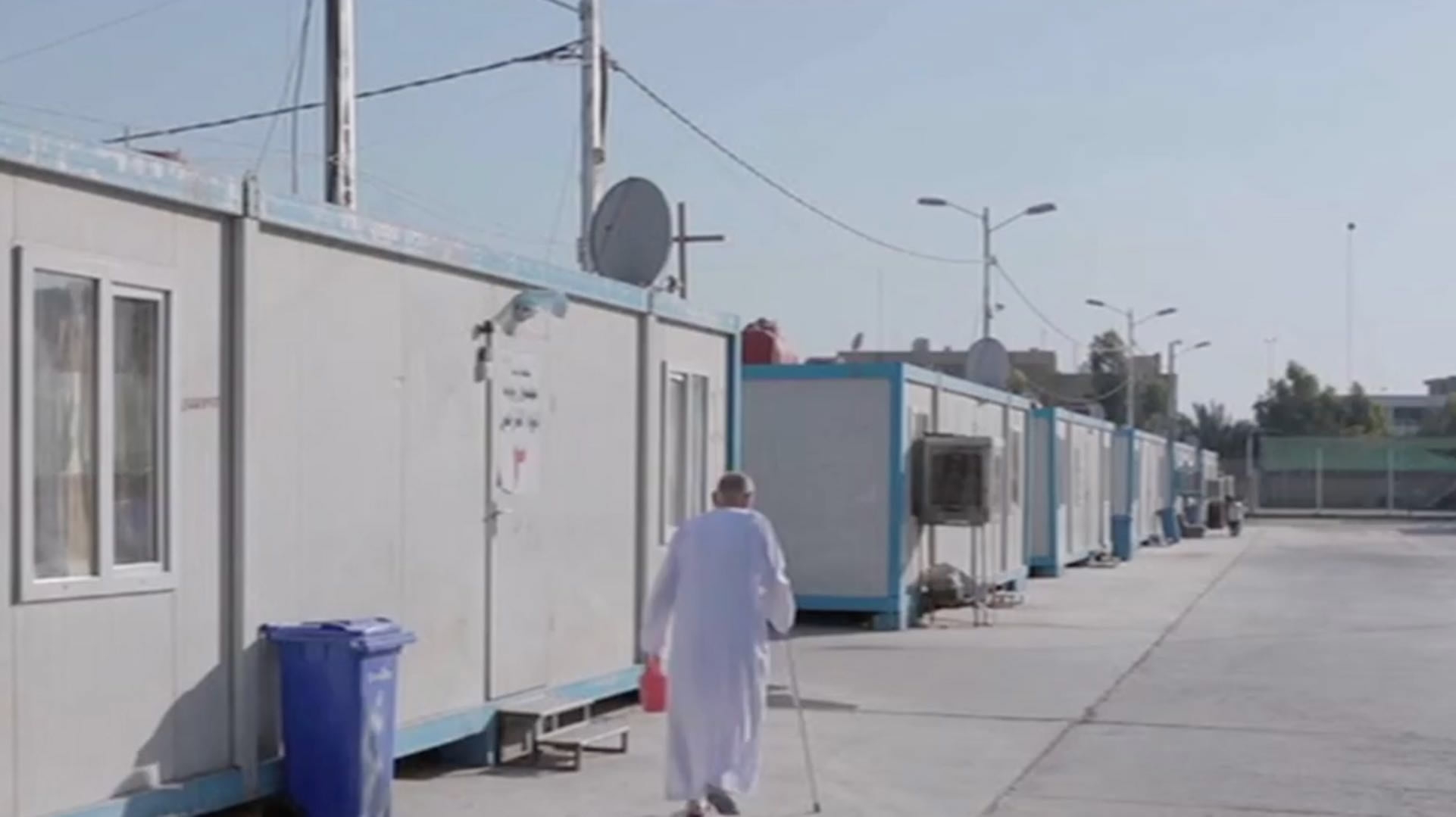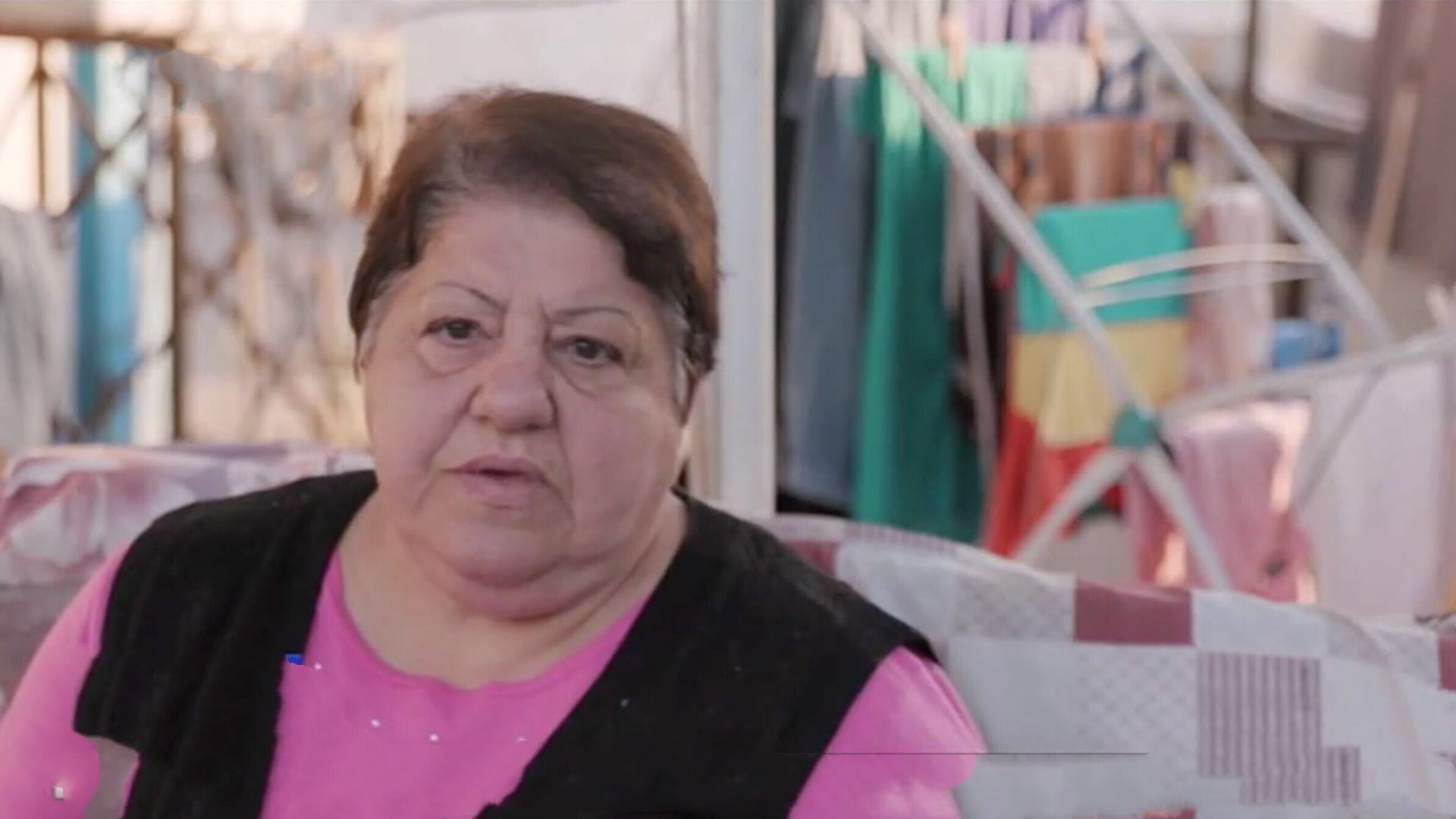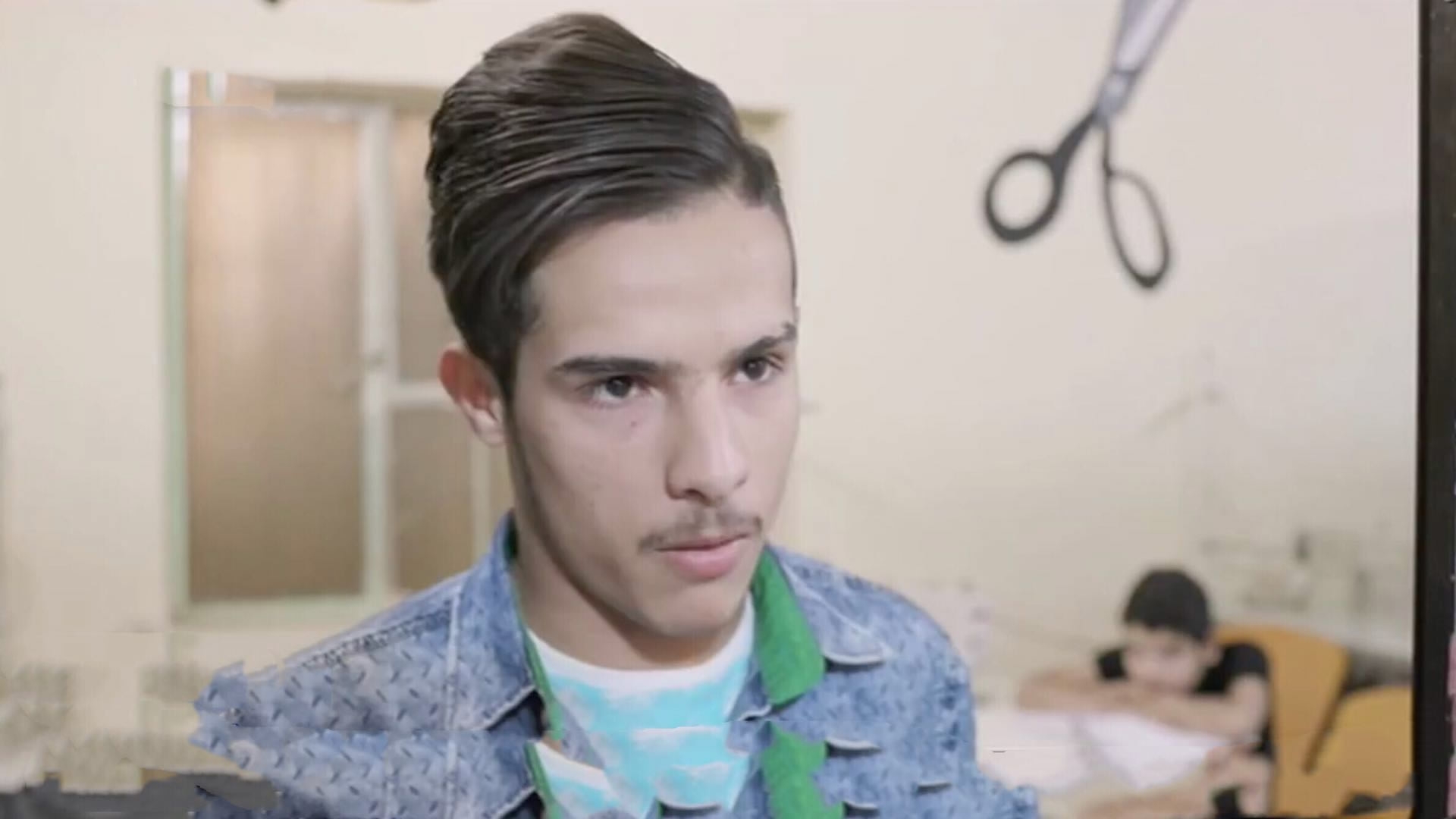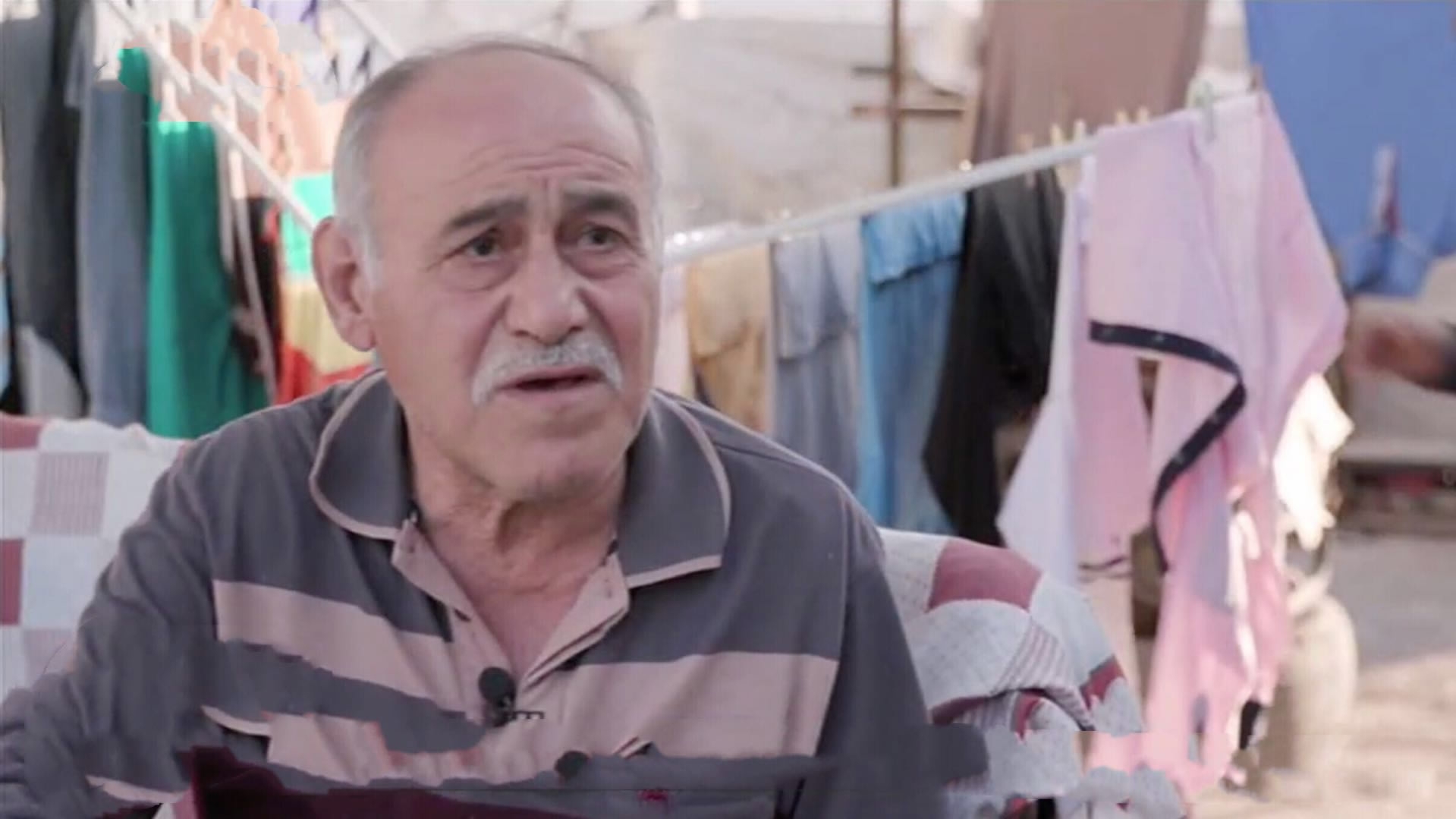
Politics
18:18, 24-Mar-2018
Iraq War 15 anniversary: Scars of war
By Jack Barton

No one knows for sure how many people have been killed or injured since a US-led coalition toppled Saddam Hussein in 2003, though even conservative estimates run into the hundreds of thousands.
Millions more fled abroad or have been displaced in their own country.
Farooq Abu Rayan and his wife Amira Toma lived in Hamdaniya, about 30 kilometers outside of the former ISIL stronghold of Mosul.
"We used to have a car and a house and shops. I used to go to my job at the Hamdaniya hospital. My son worked, my husband worked and we didn’t have any troubles," said Toma, as she and Farooq drank coffee on a plastic table perched outside their small box-like accommodation at Baghdad’s Virgin Mary camp for displaced people.

CGTN Photo
CGTN Photo
Farooq and Toma are Christians, which, like other non-Sunni groups, made them a prime target for ISIL.
They fled when a cousin alerted them at midnight that ISIL was near.
"We got some gold pieces and fled directly to Turkey. We inquired at the United Nations office, but we never had luck there so we came back and from then until now we remain here," said Farooq.
There are more than 500 people in the camp, which is one of many across Iraq where it is estimated about six million people have been displaced by ISIL's reign of terror.
In a nearby unit sits 78-year-old Fatlhallah Hadda Hazu, whose leg was amputated in the camp two years ago as a result of diabetes.

CGTN Photo
CGTN Photo
Fathallah’s children and grandchildren have all secured refugee status abroad.
He is alone with only memories of the horrors he left behind in Mosul.
"I saw a man who was just walking in the street and they just killed him. We saw this several times so I thought that someday soon I would be dead too, so I chose to flee," said Fatlhallah.
Those in the camp managed to survive ISIL and the bloodshed of the past 15 years.
Across town at the Iraqi Safe House of Creativity orphanage, many of the children’s parents did not.
17-year-old Saif Salih Husham’s mother and father were killed by a roadside bomb while travelling with him from Diyala to Baghdad.
15-year-old Ali Hazim’s parents were murdered by extremists in Anbar province, which became a hotbed of insurgency after the 2003 invasion.
They are common stories at an orphanage that does not discriminate along sectarian lines and which also counts children from Syria and Sudan among its roughly 60 young residents.
When Ali Hazim’s parents were killed, he made his own way to the orphanage, where the children are fed, sheltered and taught; and most importantly, they find safety.

CGTN Photo
CGTN Photo
"Not everybody can have a place like this. From this place a kid can become anything, a painter, and artists or a musician, and also he will acquire forty brothers instead of just one," said Ali Hazim as he helps other children using a sewing machine.
The orphanage is run by Hisham al-Thahabi, a Baghdad-based psychologist, and funded by private donations.
"This is our work to change the children's position, to heal their psychological problems, to try to make them forget the environment they came from," said Hisham.
Back at the camps people remember their homes all too well. Most people wish to return, but extremists persist in some areas and for some there is no house to go home to, or a house left in ruins.
"There are no utilities and services and every day there will be a problem so we stay here," said Farooq Abu Rayan back at the Virgin Mary camp.

CGTN Photo
CGTN Photo
Christians can leave their camps, but some of the camps for Sunnis in the north remain virtual prisons as intelligence officials try to separate ISIL sympathizers or members from their victims.
It is perhaps too soon to talk of the scars of war in Iraq, where the legacy of 15 years of bloodshed remains an open wound.

SITEMAP
Copyright © 2018 CGTN. Beijing ICP prepared NO.16065310-3
Copyright © 2018 CGTN. Beijing ICP prepared NO.16065310-3